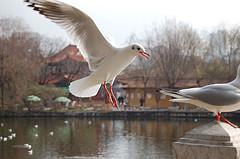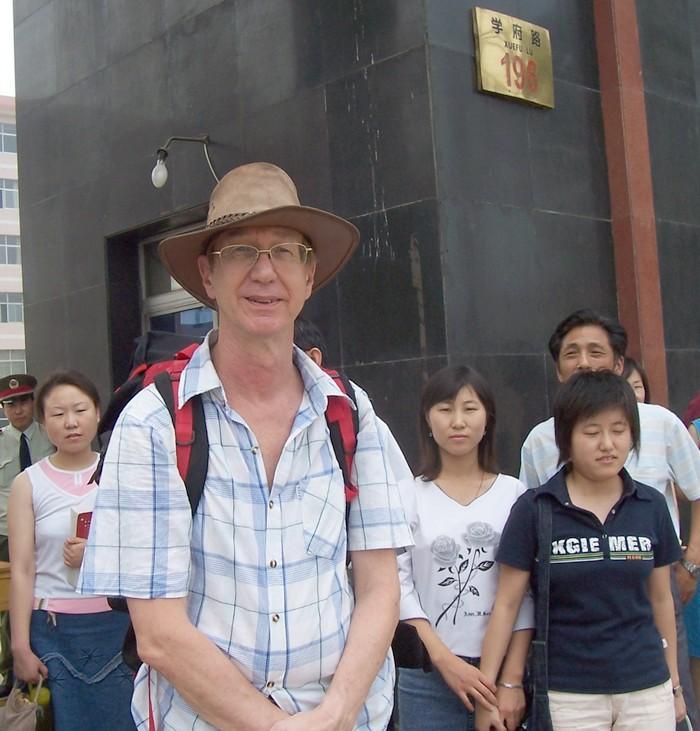| Rogge: IOC 'sporting, not political association' | |
|---|---|
| Feb 21, 2008 01:36 | |
 | International Olympic Committee (IOC) President Jacques Rogge stressed that IOC is "a sporting, not a political association." Rogue revealed his stance on the recent controversy caused by Steven Spielberg's decision to withdraw as artistic consultant to the Beijing Olympics. He said : "I do not fear a boycott because most statesmen well know that boycotts only punish those doing the boycotting," Rogge told broadcaster France 24 that it was not for the organization (IOC) to play a political role. His insisted " one should not call on IOC to solve the world's problem." As to Spielberg's boycott, Rogge stated : " "His absence will not harm the quality of the Games. The Beijing Games are much stronger than individuals," Later on Wednesday,British Foreign Secretary David Miliband also showed his strong support for Beijing Olmpics. He said that boycotting the Beijing Olympic Games is not the right way to take. "Everything we have seen and read suggests that preparations are proceeding in an excellent way. We very much look forward to a very successful Olympics, successful for China and successful for the world. We certainly believe that boycotts are not a right way," Miliband said in an interview with Chinese reporters in London before his visit to China. |
| Feb 21, 2008 22:24 | |
 | Boycott of Olympic Games can not handle the Darfur Crisis. Personally, I am strongly against that Olympic Games is mixed with too much political motives. Although Olympic Games has already been blended with national pride and and national intersts, I just don't want to see Olypic Games become the venues for UN conferences. IOC is not Security Council. |
| Feb 23, 2008 23:58 | |
 | It is at best naiive to say sport is not political, at worst it is an example of how those with power seek to prevent dissident views (which in iteslf is a political act). Politics is the application of power: nations compete for the Olympics for nationalistic reasons. There is little direct profit to be made from 'The Games', indeed objective analysts suggest is is a loss making exercise. So why do countries want to host 'The Games'? Simply for national prestige and influence in the world community. China wants to show the world that it is a modern nation and that many old perceptions held overseas about China, are not valid. I have no argument with this objective, nations compete for international prestige in many ways. But it is totally hypocritical to say that the Olympics (and sport in general) have nothing to do with politics. The IOC is a giant business which franchises out its name every 4 years. Of course it will claim that politics should be kept out of sport. It doesn't want anything to reduce the value of its brand, just like any other business. Of course Britain opposes consideration of issues like Darfur: It doesn't care if people are dying as long as its franchise in 2012 is not devalued. |
| Feb 24, 2008 21:16 | |
 | Quote >>It is at best naiive to say sport is not political, at worst it is an example of how those with power seek to prevent dissident views (which in iteslf is a political act). Politics is the application of power: nations compete for the Olympics for nationalistic reasons. << Apault, Your points are fully comprehensible. As I have mentioned that " although Olympic Games has already been blended with national pride and and national intersts, I just don't want to see Olypic Games become the venues for UN conferences." Sports has been taken advantage of by politics or so-called international prestige. It is no fault for a country to improve its international prestige through hosting Olympic Games. In fact, it is a postive thing. What I want to stress is that sensitive political issues should be excluded from Olympic Games. Let the UN solve the Problems. Although Olympic Spirit has been fading away to a large extent, any real sports fans should search the original Olympic spirit( this might sound naive,too, but that's my understanding.) Boycott of Olympic Games to solve the political issue is a political rhetoric in the Cold War period. The old rhetoric should be abandoned in the new era. The 1980 and 1984 Olympic games were boycotted by two hostile super powers in the Cold War. I don't expect that kind of boycott to happen again in the subsquent Olympic history. Perhaps, it is another naive wish. |
| Feb 25, 2008 19:24 | |
 | "His absence will not harm the quality of the Games. The Beijing Games are much stronger than individuals," It is true that the Olympics is much bigger than one individual, so I am at a loss as to why the resignation of one individual has gotten to be such a big deal. It seems that every Tom, Dick and Harry are commenting on it and they are all over. Having power is a HUGE responsibility. Seems like everyone on this planet craves for it but doesn’t know that the good comes with the bad. In the right hands, it could make a difference and create a better world. When those who can make a difference are just wringing their hands and saying “it is not my problem”, then you know we are all screwed. |
Post a Reply to: Rogge: IOC 'sporting, not political association'








 Copyright © 1998-2026 All rights reserved.
Copyright © 1998-2026 All rights reserved.